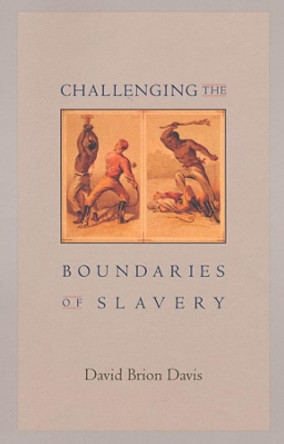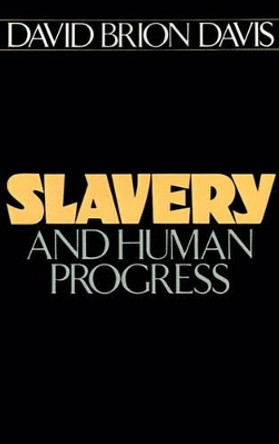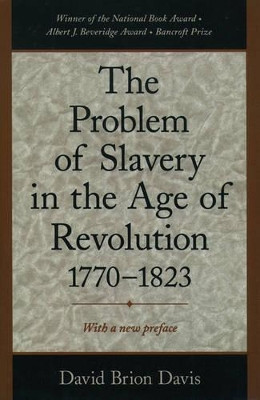David Brion Davis has long been recognized as the leading authority on slavery in the Western World. His books have won every major history award--including the Pulitzer Prize and the National Book Award--and he has been universally praised for his prodigious research, his brilliant analytical skill, and his rich and powerful prose. Now, in Inhuman Bondage , Davis sums up a lifetime of insight in what Stanley L. Engerman calls "a monumental and magisterial book, the essential work on New World slavery for several decades to come." Davis begins with the dramatic Amistad case, which vividly highlights the international character of the Atlantic slave trade and the roles of the American judiciary, the presidency, the media, and of both black and white abolitionists. The heart of the book looks at slavery in the American South, describing black slaveholding planters, the rise of the Cotton Kingdom, the daily life of ordinary slaves, the highly destructive internal, long-distance slave trade, the sexual exploitation of slaves, the emergence of an African-American culture, and much more. But though centered on the United States, the book offers a global perspective spanning four continents. It is the only study of American slavery that reaches back to ancient foundations (discussing the classical and biblical justifications for chattel bondage) and also traces the long evolution of anti-black racism (as in the writings of David Hume and Immanuel Kant, among many others). Equally important, it combines the subjects of slavery and abolitionism as very few books do, and it illuminates the meaning of nineteenth-century slave conspiracies and revolts, with a detailed comparison with 3 major revolts in the British Caribbean. It connects the actual life of slaves with the crucial place of slavery in American politics and stresses that slavery was integral to America's success as a nation--not a marginal enterprise. A definitive history by a writer deeply immersed in the subject, Inhuman Bondage offers a compelling narrative that links together the profits of slavery, the pain of the enslaved, and the legacy of racism. It is the ultimate portrait of the dark side of the American dream. Yet it offers an inspiring example as well--the story of how abolitionists, barely a fringe group in the 1770s, successfully fought, in the space of a hundred years, to defeat one of human history's greatest evils.
About the AuthorDavid Brion Davis is Sterling Professor of History Emeritus at Yale University and Director Emeritus of the Gilder Lehrman Center for the Study of Slavery, Resistance, and Abolition, also at Yale. Best known for his highly acclaimed books The Problem of Slavery in Western Culture, The Problem of Slavery in the Age of Revolution, 1770-1823, Slavery and Human Progress, and most recently, Challenging the Boundaries of Slavery, Davis has won a Pulitzer Prize, the National Book Award for History and Biography, the Bancroft Prize, the Albert J. Beveridge Award, and the Bruce Catton Prize for Lifetime Achievement, among other honors.
ReviewsA tour de force...Could not be more welcome...An invaluable guide to explaining what has made slavery's consequences so much a part of contemporary American culture and politics. * Ira Berlin, The New York Times Book Review *
Impressive and sprawling...Davis's account is rich in detail, and his voice is clear enough to coax even casual readers through this dense history. * Publishers Weekly *
Book InformationISBN 9780195339444
Author David Brion DavisFormat Paperback
Page Count 464
Imprint Oxford University Press IncPublisher Oxford University Press Inc
Weight(grams) 676g
Dimensions(mm) 160mm * 233mm * 31mm









